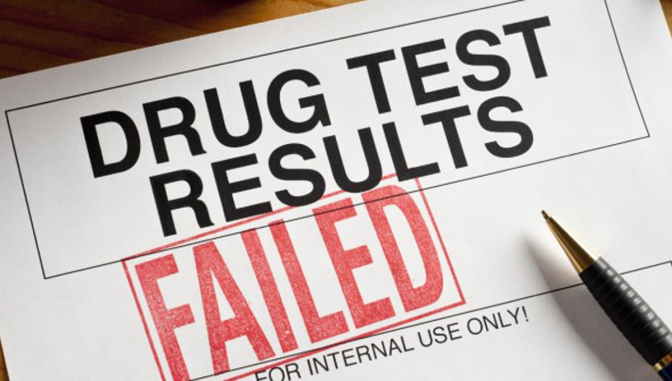NORML Pushes for Workplace Drug Testing Policy Reforms

Ever since 2012, when state laws legalizing the adult use of marijuana began to be passed, people have been contacting NORML chapters across the country wondering if they’re now protected against employment drug testing. Unfortunately, for most people, the answer is no—or at best, not yet.
California’s failed Prop 19, to legalize adult use, in 2010 specifically protected employees’ rights, which prompted strong opposition from business groups. Subsequent legalization measures (including California’s Prop 64, which passed last year) have either been silent on the issue or contain language stating that the measure does not affect employer policies restricting the consumption of marijuana by employees. Maine’s new adult-use law includes such language, but also states that an employer may not refuse to employ someone over 21 for consuming marijuana outside of work.
On the medical front, in 2008, in the Ross v. RagingWire Telecommunications case, the California Supreme Court decided that the state’s medical marijuana law does not protect employees against workplace discrimination. The supreme courts of Oregon and Washington have issued similar rulings.
Eleven states have language in their medical marijuana laws protecting patients from employment discrimination: Arizona, Arkansas, Connecticut, Delaware, Illinois, Maine, Minnesota, Nevada, New York, Pennsylvania and Rhode Island. Those laws do not apply to workers in safety-sensitive positions, who are still subject to mandatory urine testing under federal law.
Reformers in Oregon and Washington are backing bills to protect marijuana users’ rights in the workplace. Oregon’s Senate Bill 301, proposed by employment law attorney Beth Creighton and NORML legal committee attorney Leland Berger, applies the same language that protects cigarette smokers against workplace discrimination to all state-legal marijuana use. Washington’s House Bill 1094, sponsored by Washington NORML, would protect medical marijuana patients from employment discrimination. California NORML hopes to sponsor a similar bill, modeled on a measure that was vetoed by former Governor Schwarzenegger in 2008.
A Brief History of Drug Testing
Widespread drug testing started with the Reagan administration in 1986, when the president signed an executive order requiring federal agencies to implement urine-testing programs for the purpose of creating “drug-free” federal workplaces. The Drug-Free Workplace Act of 1988 followed, which required certain federal contractors to establish drug-free work-place policies (but did not mandate drug testing). Court rulings upheld the act, and in 1991 the Omnibus Transportation Employee Testing Act passed, requiring drug and alcohol testing of safety-sensitive transportation employees like truck drivers, airline crews, train crews and pipe-line employees.
In 1982, former Drug Czar Dr. Robert DuPont and former DEA Administrator Peter Bensinger formed Bensinger, DuPont & Associates, which continues to provide corporations with “a full-service solution to drug testing with management and training.” Soon, many employers were commonly screening all prospective employees for drug use, whether they were required to or not.
In 1995, the Drug & Alcohol Testing Industry Association (DATIA) was formed. The trade association, now with 1,500-plus members, represents laboratories, collection sites and testing device manufacturers.
An estimated 80% of Fortune 500 companies currently perform some type of drug testing.
Drug Tests Needlessly Demean Employees
The explosion of workplace drug testing happened despite the fact that it hasn’t been proven to advance safety. Particularly in the case of marijuana, urine testing does not measure workers’ on-the-job impairment, but in effect spies on them by detecting whether or not they used cannabis days or even weeks before a test.
The recent National Academies of Sciences, Engineering and Medicine report found “insufficient evidence” to support an association between cannabis use and occupational accidents or injuries. Another study published by Health Economics last July concluded that absenteeism is lower in states with medical marijuana laws, and a study published by the National Bureau of Economic Research in October reported greater workforce participation by adults 50 and older in cannabis-friendly states.
Although few employers have halted their drug-testing programs since Colorado legalized adult marijuana use in 2012, some are starting to complain about being unable to properly staff their companies because of invasive employee drug testing.
There’s a better alternative: Impairment testing. This technique employs game-like computer tests to measure reaction time, decision-making ability and hand-eye coordination, and screens for important factors such as fatigue, stress and illness that can also cause impairment.
A Call to Action
NORML is launching a nationwide education and legislative campaign, starting with lobbying days in California, Connecticut, Virginia and Wyoming. The campaign seeks to educate workers, employers and legislators about the injustice of drug policies that don’t improve workplace safety and discriminate against a population of productive workers by infringing on their right to privacy in their off-the-clock hours. For more information, go to norml.org.
If you enjoyed this Freedom Leaf article, subscribe to the magazine today!

